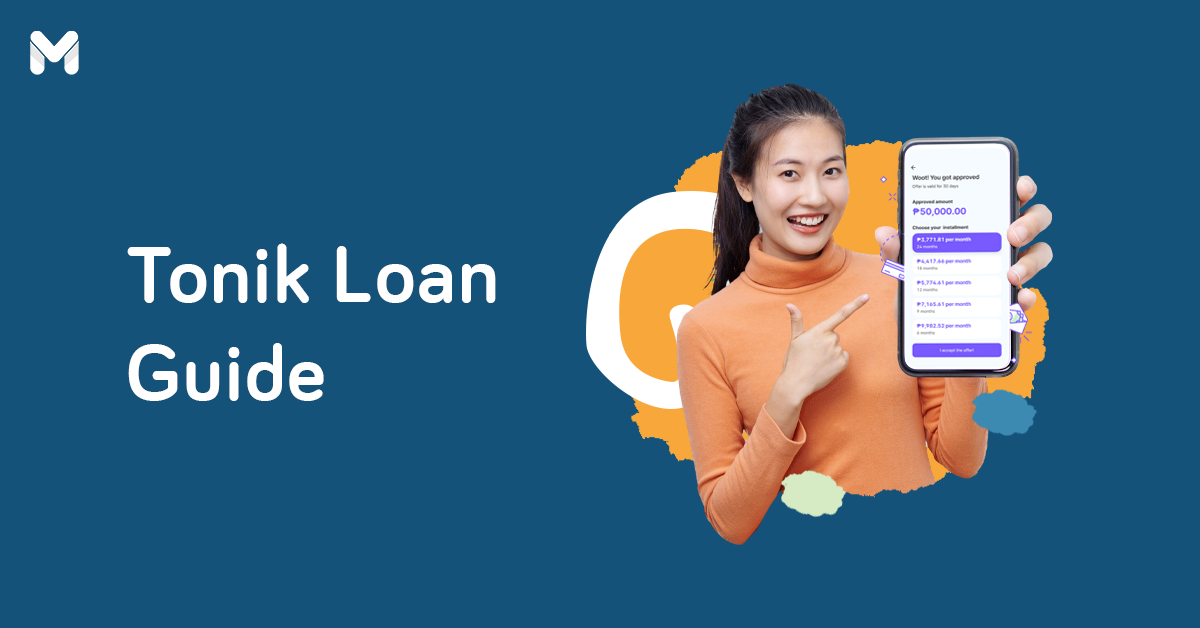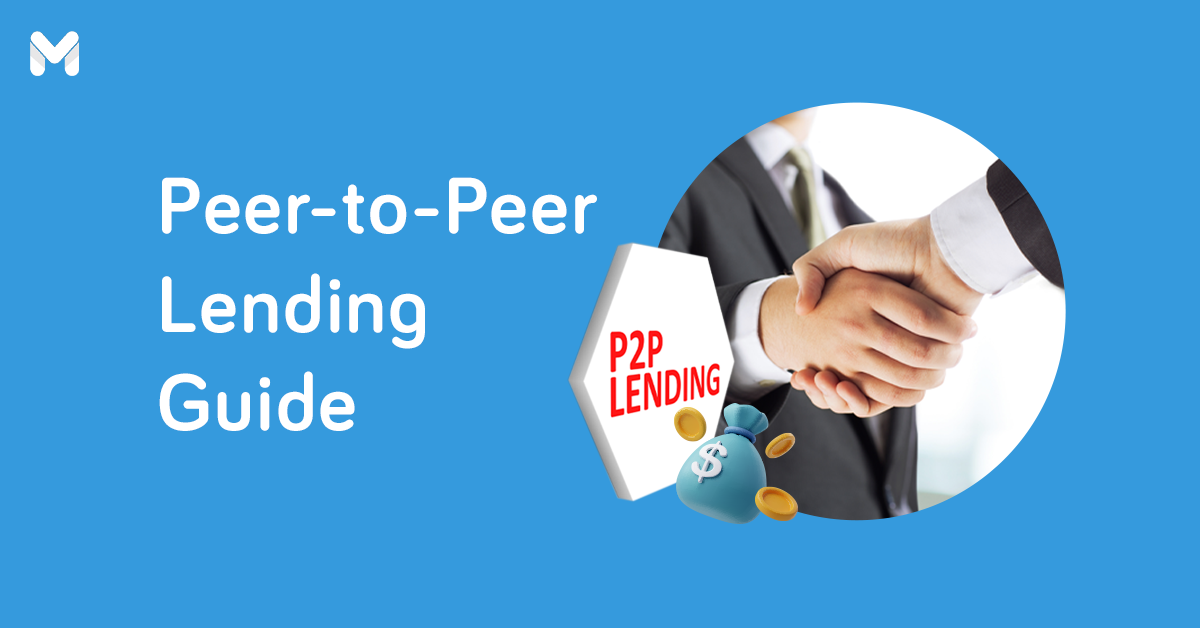These days, digital transactions are faster and more convenient. Thanks to online lending platforms, you can apply and get approved for loans anytime, anywhere via a cellphone or laptop. As a result, online loans are attractive options for cash-strapped borrowers.
Unfortunately, some lenders resort to harassment and threats in collecting payments for unpaid online loans in the Philippines. In 2023,[1] 35 individuals from an online lending firm in Makati were arrested for threatening clients who were unable to settle their debt on time.
And it's not just an isolated incident—there have been several stories about such abusive collection practices. If this is your predicament right now, this article will guide you on what to do if an online lender harasses or threatens you.
What to Do If a Lender Harasses You for an Unpaid Online Loan in the Philippines
What to do if you’re a victim of online lending harassment? SLAP.
This does not mean physically hurting someone. Rather, it is an acronym:
SLAP: Stay calm, Learn, Arrange, and Pursue.
Each of these steps will be explained below.
Step 1: Stay Calm
-Mar-21-2024-01-58-23-1646-AM.png?width=600&height=400&name=Pics%20for%20blog%20-%20600x400%20(18)-Mar-21-2024-01-58-23-1646-AM.png)
When faced with personal attacks from lenders or collecting agents, your instinctive reaction might be to counter them with anger. It's easy to be upset; these moments will drain your energy.
But when tempers flare, it clouds judgment. The best response is to stay calm. Don't let these unscrupulous individuals distress you.
Yes, you owe them money. But that does not entitle them to harass, threaten, or shame you. Insist on fair treatment.
Reach out to the company and raise your concerns. This is important—should you decide to pursue a formal complaint later on, you must provide evidence or proof that you reached out to the company or exhausted all remedies against the harassment.
Staying calm is the first step. If you allow heightened emotions to get in the way, it will be difficult to get to the fourth and last step.
Yes, you owe them money. But that does not entitle lenders to harass, threaten, or shame you. Insist on fair treatment.
Related article: What is Loan Default and How Will It Affect Your Finances?
Step 2: Learn
-Mar-21-2024-02-00-19-5662-AM.png?width=600&height=400&name=Pics%20for%20blog%20-%20600x400%20(19)-Mar-21-2024-02-00-19-5662-AM.png)
The quote "knowledge is power" is also true when dealing with credit collecting agencies. Learn what lenders can and cannot do and what an unfair collection practice is.
Familiarize yourself with the rules and treat this as your ally against online lender harassment and threats.
❓ What is an unfair collection practice?
Unfair collection practices are acts that lenders or their agents cannot do when collecting payments from borrowers. In collecting the amount due to them, lenders must resort only to reasonable and legal means. There are penalties if they are found liable for unfair collection practices.
Related article: Predatory Lending: What are Loan Sharks and How to Avoid Them?
❓ What are the regulatory agencies that determine unfair collection practices?
The Bangko Sentral ng Pilipinas (BSP) regulates banks, credit card companies, and their collection agencies in the Philippines. It issued BSP Circular No. 454 Series of 2004, prohibiting banks, credit card companies, and collection agencies from engaging in unscrupulous or untoward acts. It also listed unfair collection practices (threats, insults, contacting before 6:00 a.m. or after 10:00 p.m., etc.).
Meanwhile, the Securities and Exchange Commission (SEC) regulates financing companies (FCs) or lending companies (LCs). In 2019, it issued SEC Memorandum Circular No. (MC) 18,[2] listing conducts that are considered unfair collection practices. The list is also the same as those prohibited in BSP Circular No. 454.
❓ What debt collection practices are considered unfair?
The following are considered unfair collection practices by FCs and LCs under SEC MC 18:
- Using or threatening violence to harm the borrower, his or her reputation, or property
- Using threats to take any action that cannot legally be taken
- Using obscenities, insults, or profane language
- Disclosing or publishing the names and other personal information of borrowers for allegedly refusing to pay debts (except those allowed under Section 2 of MC 18)
- Communicating or threatening to communicate to any person the loan information, which is known, or should be known, is false (except those instances allowed under Section 2 of MC 18)
- Using false representation or deceptive means to collect any debt or obtain information about a borrower
- Contacting before 6:00 a.m. or after 10:00 p.m. except:
- If the account is past due for more than 15 days; or
- The borrower gave express consent that only those times are reasonable or convenient opportunities for contact
- Contacting the persons in the borrower’s contact list (except the guarantors or co-makers)
❓ Can a collecting agent contact the persons in the borrower’s contact list if the borrower gave consent?
No. Under SEC MC 18, even if the borrower gave consent, the persons in their contact list (except for the guarantors or co-makers) cannot be contacted. Or else, such an act constitutes unfair debt collection practice.
Similarly, the National Privacy Commission (NPC) issued Circular No. 20-01, titled Guidelines on the Processing of Personal Data for Loan-Related Transactions, which prohibits online lenders from accessing contact lists or email lists for debt collection to harass the borrower or his/ her contacts.
Violations of data privacy fall within the jurisdiction of the NPC based on the Data Privacy Act. Check the NPC website for more information.[3]
❓ Are lenders still liable for unfair collection practices even if they outsource their collection activities?
Yes. Even if SEC MC 18 allows the outsourcing of payment collection to a third-party service provider, the ultimate responsibility for collection practices and compliance with SEC MC 18 is still with the FCs or LCs.
❓ What are the penalties for unfair collection practices?
Any violation of SEC MC 18 shall subject the FCs and LCs to the following penalties:
| Penalty | Lending Companies | Financing Companies |
|---|---|---|
| First offense | ₱25,000 | ₱50,000 |
| Second offense | ₱50,000 | ₱100,000 |
| Third offense | Any of the following:
|
Any of the following:
|
❓ Are online loans legal in the Philippines? How to know if the online lender is legal?
A legally operating online lending company or platform in the Philippines is registered with the SEC. The SEC posted the list of online lending platforms on its website.[4] LCs and FCs with revoked licenses or Certificates of Authority are also posted on the SEC website.[5]
The SEC issued SEC MC 10 Series of 2021, imposing a moratorium that no new online lending platforms will operate in the Philippines.[6] This was due to numerous complaints the SEC received relating to alleged violations by online lending platforms.
According to SEC MC 10, there is a need to closely monitor and assess the operations of existing online lending platforms to promote lending and financing businesses while ensuring the protection of consumers in the Philippines.
The SEC requires online lenders to report their operations to the SEC no later than 10 days before their launch. Otherwise, this is a violation of SEC MC No. 19. There are penalties for this.
The SEC continuously intensifies its crackdown on abusive lending companies that engage in threatening or insulting borrowers.
❓ Can my photo be used to embarrass me and collect my overdue loan?
No. This violates NPC Circular No. 20-01,[7] which provides that a borrower’s photo can be used only for Know Your Client (KYC) purposes. It expressly provides that in no way shall the borrower’s photo be used to harass or embarrass them to collect an unpaid online loan in the Philippines.
Editor's note: Human rights advocate Atty. Chel Diokno also talks about online lending harassment. Watch his video to learn more about what to do if you're a victim:
Step 3: Arrange
-Mar-21-2024-02-02-10-5761-AM.png?width=600&height=400&name=Pics%20for%20blog%20-%20600x400%20(20)-Mar-21-2024-02-02-10-5761-AM.png)
You may find yourself deleting text or email messages sent by the collecting agent who has been harassing or threatening you. Don’t.
Arrange and prepare these messages as evidence of the harassment or threats. Make sure you collect all the evidence. Be as detailed as possible.
Filing a formal complaint before a regulatory agency or a court is like baking. Before you begin, make sure to prepare all the ingredients.
In this case, you must have all the proof against the lender or collecting agent who is harassing or threatening you. Complaints filed in court or regulatory agencies that do not have enough information to support the allegations are likely to be dismissed.
Filing a formal complaint before a regulatory agency or a court is like baking. Before you begin, make sure to prepare all the ingredients.
Step 4: Pursue
-Mar-21-2024-02-03-25-4165-AM.png?width=600&height=400&name=Pics%20for%20blog%20-%20600x400%20(21)-Mar-21-2024-02-03-25-4165-AM.png)
"Where do I report online lending harassment in the Philippines?" Once you arm yourself with information about your rights and your supporting documents, you can file a formal complaint with the regulatory agency (SEC, BSP, or NPC) to stop these lenders or collecting agents from abusive practices.
If it is a bank or a non-bank financial institution under the supervision of the BSP, you may file it with the BSP. Find the list of banks and non-bank financial institutions on the BSP’s website.[8]
Complaints against online lending companies may be filed with the SEC. Download a copy of the complaint form from the SEC website.[9] Fill out this Complaint Form with all the documents, evidence, and proof to support your complaint and a valid government-issued ID.
As pointed out in Step 1, you must provide evidence or proof that you reached out to the company or exhausted all the remedies before filing your complaint with the SEC.
Like the BSP and NPC, the SEC also allows the filing of complaints via email. The SEC created a video tutorial to help borrowers easily understand the requirements for filing complaints against FCs and LCs:
Read other Ask Moneymax articles:
- What Should I Do in Case of Non-Payment of Loans in the Philippines?
- Dear Lender: Go Easy on Me! It’s Pandemic and I’m Bankrupt, er, Insolvent
- What is Credit Card Delinquency and How to Avoid It?
Final Thoughts
Know your rights so you can insist on being treated fairly. Reading articles such as this is a good start.
Yes, there are plenty of horrifying stories about online lenders who harass or threaten borrowers regarding unpaid online loans in the Philippines. But there are also those who are not out there to make you their prey.
Just make sure to keep an eye out for red flags. Always ensure that you are dealing with reputable online lenders. As with other challenges in life, debt problems can take a toll on your mental health, but trust that you can surpass this.

Sources:
- [1] 35 supervisors of Makati online lending firm charged over 'loan scam' (PNA, 2023)
- [2] SEC MC No. 18 s.2019 – Prohibition on Unfair Debt Collection Practices of Financing Companies and Lending Companies
- [3] NPC's Mechanics for Complaints
- [4] SEC List of Recorded Online Lending Platforms
- [5] SEC List of Revoked and Suspended Lending Companies
- [6] SEC stamps out unregistered online lending apps (Inquirer, 2023)
- [7] NPC Circular No. 20-01 - Guidelines on the Processing of Data for Loan-Related Transactions
- [8] BSP Directory of Banks and Non-Bank Financial Institutions
- [9] SEC Complaint Form
DISCLAIMER: The information provided on this website does not, and is not intended to, constitute legal or financial advice. All information, content, and materials available on this site are for general informational purposes only. Information on this website may not constitute the most up-to-date legal or other information and is subject to change without notice.
No user of this site should act or refrain from acting on the basis of information on this site without first seeking legal advice from their own attorney in the relevant jurisdiction. Only your individual attorney can provide assurances that the information contained herein – and your interpretation of it – is applicable or appropriate to your particular situation. Use of, and access to, this website or any of the links or resources contained within the site do not create an attorney-client relationship between the reader, user, or browser and website authors, contributors, contributing third parties, and their respective employers.
All liability with respect to actions taken or not taken based on the contents of this site are hereby expressly disclaimed. The content on this posting is provided “as is;” no representations are made that the content is error-free.









